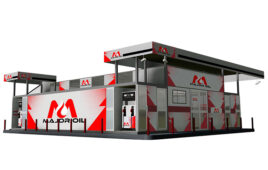 89% of consumers believe that the Durbin Amendment should be kept in place.
89% of consumers believe that the Durbin Amendment should be kept in place.
Over the past five years, the cap on debit card swipe fees, which was put in place by the Durbin Amendment, has saved consumers billions of dollars, but the head of the House Financial Services Committee recently proposed to repeal this cap. The National Retail Federation is now requesting that Congress reject this new proposal.
“Repealing this cap would double the fees that banks charge retailers and their customers when they use a debit card to pay for purchases,” NRF senior vice president and general counsel Mallory Duncan said. “Doubling swipe fees and driving up prices paid by consumers seems like a strange platform to ask members of Congress to run on during an election year. A vote to repeal the Durbin Amendment is a vote for higher consumer prices and isn’t likely to win many votes in November.”
“Without Durbin’s competition-enhancing standards, banks would be free to return to the days of unfettered price fixing when they could charge monopoly-like fees for a task that costs them pennies,” Duncan said. “We can’t allow that to happen. Swipe fees are a hidden tax on goods and services purchased by consumers every day. Hidden taxes are bad for consumers and our nation’s economy.”
Financial Services Committee chairman Jeb Hensarling, R-Texas, has released a draft version of legislation that would repeal the Durbin Amendment cap on debit swipe fees as part of a broader rewrite of the Dodd-Frank Wall Street Reform and Consumer Protection Act of 2010. Hensarling’s proposal follows standalone legislation to repeal Durbin introduced earlier this month by committee member Representative Randy Neugebauer, also R-Texas.
Prior to passage of the Durbin Amendment as part of Dodd-Frank, banks charged retailers 1-2% of the purchase amount to process debit card transactions. That amounted to about 45 cents on the typical debit purchases but could come to several dollars on larger purchases.
Durbin required the Federal Reserve to adopt regulations resulting in “reasonable and proportional” debit swipe fees. Under rules that took effect in October 2011, debit swipe was limited to a flat fee of 22 cents per transaction plus 0.05% of the purchase, or just under a quarter in most cases. The cap applies only to the nation’s largest banks, but they issue the majority of debit cards.
Without the cap, the typical debit swipe fee would likely go back to the previous 45 cents if not higher, Duncan said.
In addition to repealing the cap, the Hensarling and Neugebauer proposals would repeal a Durbin provision that lets retailers route debit transactions over payment networks that compete with those owned by the major card companies.
Retailers have passed along the overwhelming majority of the $8.5 billion in annual savings from Durbin to consumers, according to a study conducted by noted economist Robert Shapiro. At 22 cents, however, the cap is more than five times banks’ actual cost of processing debit transactions, and NRF earlier this year urged the Federal Reserve to set the cap at a lower level. The Fed has estimated banks’ actual cost of processing debit transactions at an average of only four cents.
An NRF survey conducted last weekend found that 89% of consumers responding said the cap should be left in place.
NRF is the world’s largest retail trade association, representing discount and department stores, home goods and specialty stores, Main Street merchants, grocers, wholesalers, chain restaurants and Internet retailers from the U.S. and more than 45 countries. Retail is the nation’s largest private sector employer, supporting one in four U.S. jobs – 42 million working Americans. Contributing $2.6 trillion to annual GDP, retail is a daily barometer for the nation’s economy. NRF’s This is Retail campaign highlights the industry’s opportunities for life-long careers, how retailers strengthen communities, and the critical role that retail plays in driving innovation.




